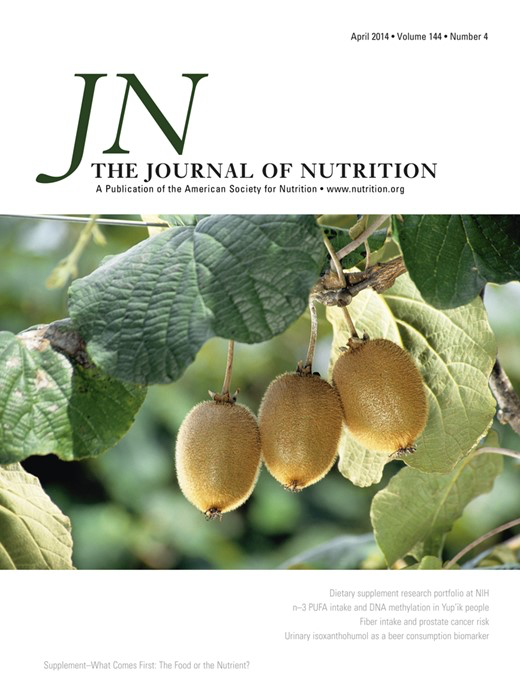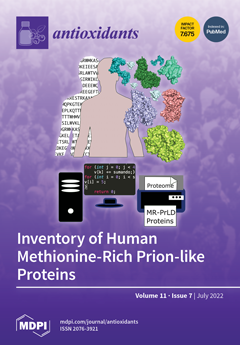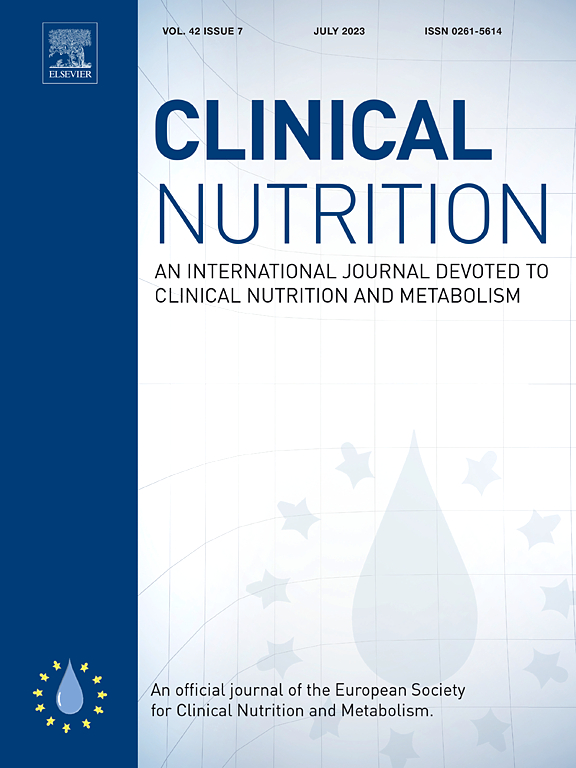Peanut Butter
How to submit an article:
- Registered users can submit any published journal article that has a unique DOI (Digital Object Identifier) name or link to Research Hub.
- For example, you can paste the full DOI link:
https://doi.org/10.1109/5.771073or just the DOI name:10.1109/5.771073into the field above and click submit. - The person who is first to submit a valid article to Research Hub will forever be credited for it, and every article submission earns you +6 Research Points.
Related Topics
Published research studies are articles that present the findings of original research that has undergone a peer-review process and has been made publicly available in scholarly journals, books or other media.

Long-Term Consumption of Nuts (Including Peanuts, Peanut Butter, Walnuts, and Other Nuts) in Relation to Risk of Frailty in Older Women: Evidence from a Cohort Study
2023 Mar The Journal of Nutrition Wang R, Hannan MT, Wang M, Schwartz AW, Lopez-Garcia E, Grodstein F
Cohort Study Peanut FrailtyRegular nut consumption, particularly peanuts and walnuts, is associated with a lower incidence of frailty in aging female populations.

Urinary Phenolic Metabolites Associated with Peanut Consumption May Have a Beneficial Impact on Vascular Health Biomarkers
2023 Mar 11 Antioxidants Parilli-Moser I, Domínguez-López I, Vallverdú-Queralt A, Hurtado-Barroso S, Lamuela-Raventós R
Consumers of SRP and PB exhibited significantly higher excretion of specific UPMs, including enterodiol glucuronide, 3-hydroxybenzoic acid, vanillic acid sulfate, p-coumaric acid, coumaric acid glucuronide I and II, and isoferulic acid, compared to the control group. The peanut interventions also led to an improvement in prostacyclin I2 (PGI2) levels and the thromboxane A2 (TXA2):PGI2 ratio. Higher post-intervention levels of UPMs were correlated with positive changes in vascular biomarkers, indicating a potential positive impact of peanut product consumption on vascular health.
Clinical Study Randomised Controlled Trial Peanut Cardiovascular Disease
Consumption of peanut products improves memory and stress response in healthy adults from the ARISTOTLE study: A 6-month randomized controlled trial
2021 Nov Clinical Nutrition Parilli-Moser I, Domínguez-López I, Trius-Soler M, Castellví M, Bosch B, Castro-Barquero S, et al.
Regular peanut and peanut butter consumption may enhance memory function and stress response in a healthy young population.
Randomised Controlled Trial Stress Peanut Cognitive Function Peanut ButterThe Association between Peanut and Peanut Butter Consumption and Cognitive Function among Community-Dwelling Older Adults
2021 Jan The Journal of Prevention of Alzheimer's Disease Katzman EW, Nielsen SJ
Individuals who consumed peanut and peanut butter (P/PB) were found to have better performance on cognitive function tests compared to those who did not consume P/PB.
Clinical Study Peanut Butter PeanutResearch insights are moderated by the Research Hub team and offer an at-a-glance overview of interesting research findings.

2023 The Journal of Nutrition
Regular nut consumption, particularly peanuts and walnuts, is associated with a lower incidence of frailty in aging female populations.
Cohort Study Frailty Peanut
Long-Term Consumption of Nuts (Including Peanuts, Peanut Butter, Walnuts, and Other Nuts) in Relation to Risk of Frailty in Older Women: Evidence from a Cohort Study
Wang R, Hannan MT, Wang M, Schwartz AW, Lopez-Garcia E, Grodstein F
Review Articles
Review articles summarise and critically evaluate the current state of research on a specific topic or field by synthesising multiple primary research studies.
Clinical Trials
Clinical trials are research studies that involve people and are conducted to evaluate the safety and efficacy of new treatments or interventions, such as drugs, medical devices, or behavioural therapies.

Urinary Phenolic Metabolites Associated with Peanut Consumption May Have a Beneficial Impact on Vascular Health Biomarkers
2023 Mar 11 Antioxidants Parilli-Moser I, Domínguez-López I, Vallverdú-Queralt A, Hurtado-Barroso S, Lamuela-Raventós R
Consumers of SRP and PB exhibited significantly higher excretion of specific UPMs, including enterodiol glucuronide, 3-hydroxybenzoic acid, vanillic acid sulfate, p-coumaric acid, coumaric acid glucuronide I and II, and isoferulic acid, compared to the control group. The peanut interventions also led to an improvement in prostacyclin I2 (PGI2) levels and the thromboxane A2 (TXA2):PGI2 ratio. Higher post-intervention levels of UPMs were correlated with positive changes in vascular biomarkers, indicating a potential positive impact of peanut product consumption on vascular health.
Clinical Study Randomised Controlled Trial Peanut Cardiovascular Disease
Consumption of peanut products improves memory and stress response in healthy adults from the ARISTOTLE study: A 6-month randomized controlled trial
2021 Nov Clinical Nutrition Parilli-Moser I, Domínguez-López I, Trius-Soler M, Castellví M, Bosch B, Castro-Barquero S, et al.
Regular peanut and peanut butter consumption may enhance memory function and stress response in a healthy young population.
Randomised Controlled Trial Stress Peanut Cognitive Function Peanut ButterStudy Protocols
Published study protocols are detailed plans that outline the objectives, methodology, statistical analyses, and organisation of a research study that have been made publicly available for others to review and use as a reference.
Presentation Slides

Cohort Study
Regular nut consumption, particularly peanuts and walnuts, is associated with a lower incidence of frailty in aging female populations.
Wang R, Hannan MT, Wang M, Schwartz AW, Lopez-Garcia E, Grodstein F
Executive Summary
Write an executive summary in the form of a blog article on the topic of "Research into Chinese medicine treatment for Peanut Butter" summarising the research below and using language that can be easily understood by patients and avoiding medical jargon using a professional and caring tone of voice.
Write an executive summary in the form of a blog article on the topic of "Researched Chinese medicine treatments for Peanut Butter" summarising the research below in an objective and easy to understand way, and using language that can be easily understood by patients. Group the article into Chinese medicine treatments first, followed by nutrition and other treatments. Avoid using medical jargon and use a professional and caring tone of voice.
Write me a concise but easy to understand executive summary on the topic of "Chinese medicine treatments for Peanut Butter" based on the following research that I will give you. Your summary should be 2 paragraphs long in Australian English spelling and include references to the studies.
A Cohort Study published in 2023 in the journal The Journal of Nutrition found that Regular nut consumption, particularly peanuts and walnuts, is associated with a lower incidence of frailty in aging female populations. The methodology of the study includes a population-based observational study of nonfrail women aged 60 and above from 11 states across the US, from the Nurses' Health Study. The outcome focused on incidence of frailty, defined through the FRAIL components such as fatigue, lower strength, reduced aerobic capacity, multiple chronic conditions, and significant weight loss. These were assessed every four years from 1992 to 2016. Food Frequency Questionnaires were used to examine the intake of peanuts, peanut butter, walnuts, and other nuts every four years from 1990 to 2014. Total nut consumption was calculated and categorized into varying serving sizes, and the relation of intake of each type of nut with frailty was examined separately using Cox proportional hazard models, adjusted for various factors such as age, smoking, BMI, diet quality, and medication use. In discussing the results, out of 71,704 participants, 14,195 frailty cases arose over a million person-years. Notably, regular consumption of nuts, particularly peanuts and walnuts, showed a significant inverse relation with frailty. That is, a higher intake of these types of nuts were associated with lower cases of frailty. However, the same didn't apply to peanut butter. This affirms the potential benefits of regular nut consumption in aging female population's health and well-being.
Moderation Tools
Topic
Sign In
Users not signed in are limited to viewing the 5 most recent items of content.